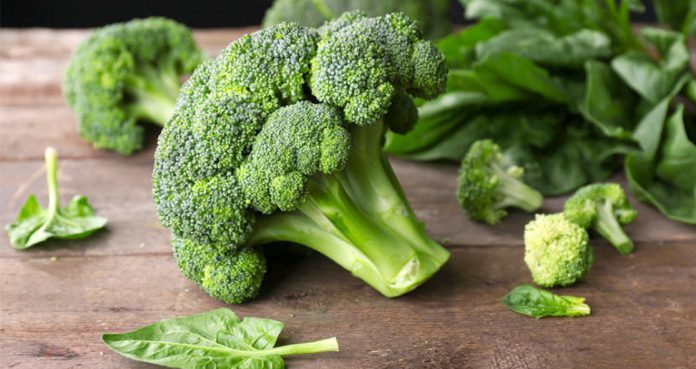Your mom was right; eat your greens!
It is a known fact that green leafy vegetables, cruciferous vegetables, including broccoli, have been long associated with decreased risk of cancer. They contain a molecule that inactivates a gene that is known to play a crucial role in causing a variety of cancers in human beings.
According to a report published Thursday in Science, a team of researchers led by Dr. Pier Paolo Pandolfiof the Cancer Center and Cancer Research Institute at Beth Israel Deaconess Medical Center found that targeting the gene, called WWP1, with an ingredient found in broccoli inhibited tumor growth in lab animals that were prone to cancer.
Dr. Pandolfi said, “We found a new important player that drives a pathway critical to the development of cancer, an enzyme that can be inhibited with a natural compound found in broccoli and other cruciferous vegetables. This pathway emerges not only as a regulator for tumor growth control, but also as an Achilles’ heel we can target with therapeutic options.”
PTEN, a potent tumor suppressive gene, is one of the most frequently mutated tumor suppressor genes in cancers. The researchers said that certain inherited PTEN mutations increase the risk of developing syndromes characterized by cancer susceptibility as well as developmental defects.
Dr. Pandolfi and his team identified the molecules and compounds that can regulate PTEN function and activation.
They carried out experiments in cancer-prone mice and human cells. The team found that a gene called WWP1 produces an enzyme that inhibits the tumor suppressive activity of PTEN. WWP1 is also known to play a crucial role in the development of cancers.
So, how to disable this PTEN kryptonite? By analyzing its physical shape, the team recognized that an ingredient called indole-3-carbinol (I3C) in broccoli and its family could be the key to preventing the cancer-causing effects of WWP1.
Dr. Pandolfi and his team applied this idea by administering I3C to cancer-prone lab animals. They found that the molecule in broccoli inactivated WWP1, putting the brakes on the tumor suppressive activity of PTEN.
However, first author Yu-Ru Lee, a member of Dr. Pandolfi’slab, noted that you would have to eat at least 6 pounds of Brussels sprouts daily to reap their potential anti-cancer benefits, which is why the team is seeking other ways to leverage this new discovery.
Dr. Pandolfi said, “Either genetic or pharmacological inactivation of WWP1 with either CRISPR technology or I3C could restore PTEN function and further unleash its tumor suppressive activity. These findings pave the way toward a long-sought tumor suppressor reactivation approach to cancer treatment.”





















